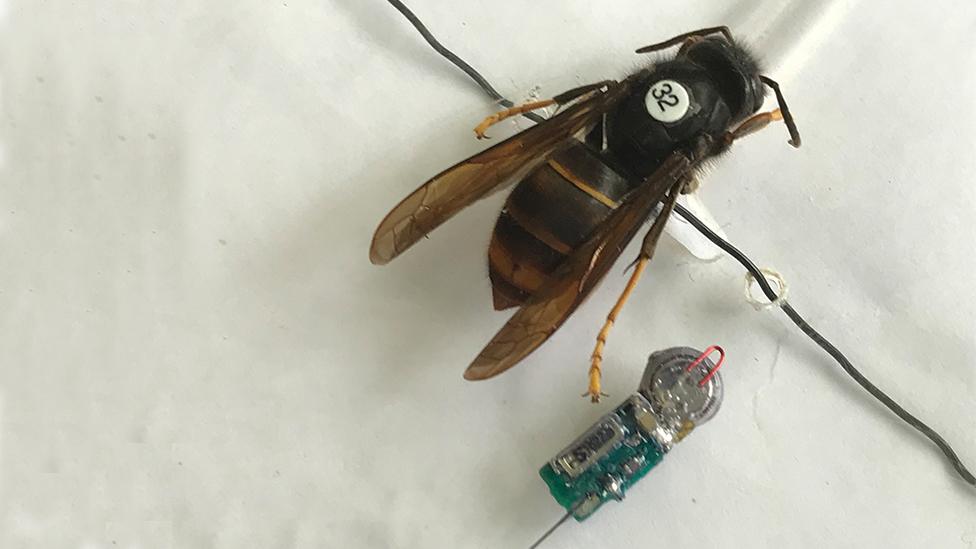Hampshire and Surrey record first Asian hornet finds
- Published
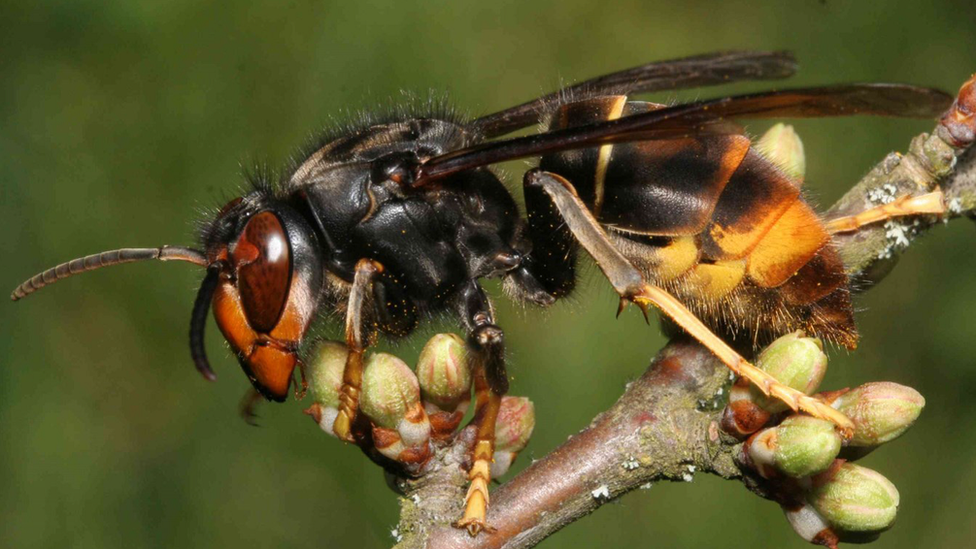
Asian hornets have spread rapidly across continental Europe
Bee-killing Asian hornets have been found for the first time in Hampshire and Surrey, the government has said.
The invasive predators, thought to have come from continental Europe, were discovered nesting in September in Alresford and Brockenhurst.
A single dead insect was found in a car grille in Guildford.
The Centre for Ecology and Hydrology (CEH) said there was no evidence of the hornets spreading across the UK despite an increased number of sightings.
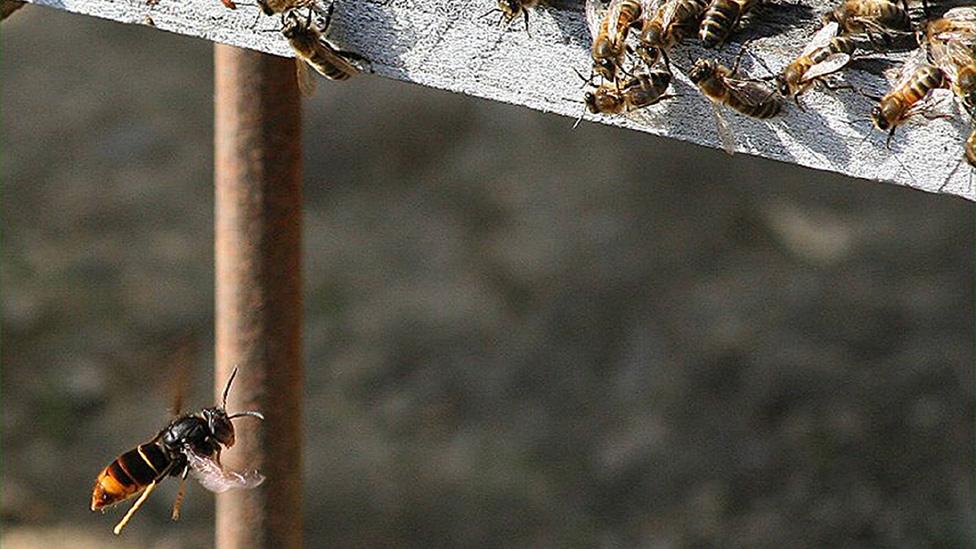
The hornet hovers near hives and attacks and eats the bees
Asian hornets, which eat honeybees and other pollinators, were first recorded in the UK in 2016.
In September, there were seven confirmed Asian hornet finds, external, including in three Cornwall and one in Yorkshire.
Prof Helen Roy from CEH said there was no sign that new colonies had been started in the UK by overwintering queen hornets.
"I think we would have seen evidence of spread if it had happened. I feel optimistic at the moment," she said.
"The spread through France has been rapid. What we're seeing in the UK is really effective eradication."

Asian hornet (Vespa velutina)
Asian hornets: What's all the buzz about vespa velutina?
Queens are up to 3cm (1.2in) in length, while workers are up to 2.5cm (1in)
The hornets have a dark brown or black velvety body, bordered with a fine yellow band
They nest openly in trees and hedges, unlike European hornets which often nest in cavities
They hover near hives to snatch worker bees, mascerate them into a pellet and take them back to their colony
Their sting is no more potent than the European hornet's
Source: National Bee Unit / University of Exeter/ Centre for Ecology and Hydrology

Dr Peter Kennedy from the University of Exeter said it was not clear whether the recent sightings had revealed "individual incursions" or "previously-unnoticed populations".
Previous cases in Gloucestershire and Scotland had been attributed to insects arriving with imported goods, he said.
Asian hornet nests have been found across the Channel Islands.
The government has appealed for vigilance "to stop this insect establishing in the UK".
- Published12 September 2018

- Published11 September 2018
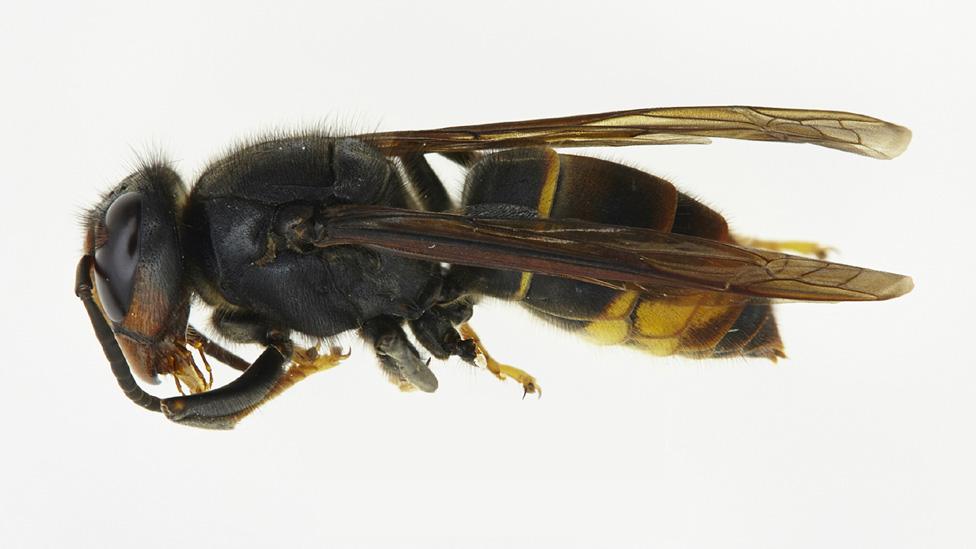
- Published4 September 2018
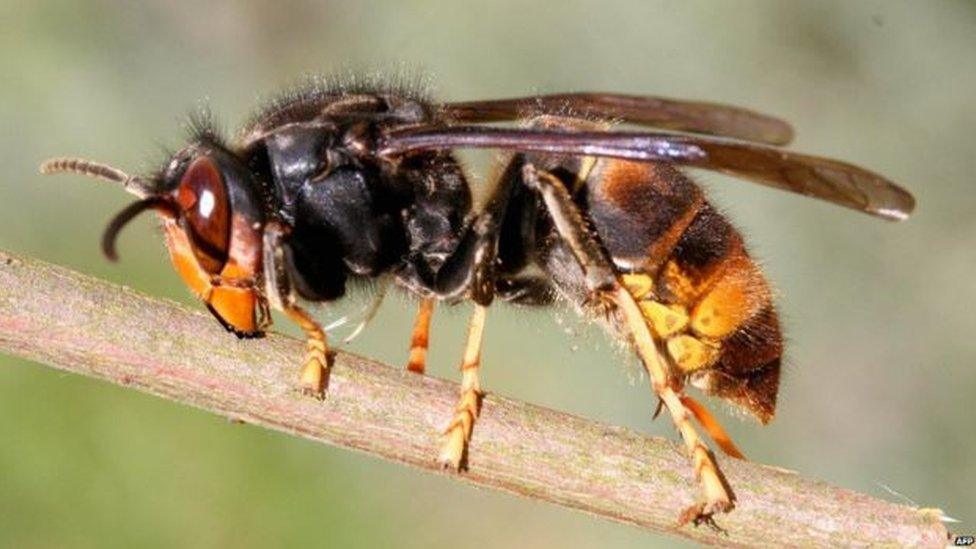
- Published4 July 2018
